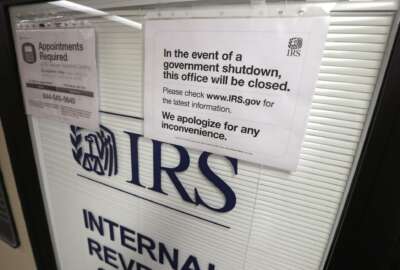

IRS phone operators bear the brunt of taxpayer ire. But phone staff didn't create the problem everyone lives with.
Imagine coming to work every day and facing a workload you know you can’t finish. That no one could finish. Every day you frustrate hundreds, maybe thousands of people seeking your help. The backlog grows out of your control. The reputation of your agency worsens, drip by drip, with each unfulfilled item.
That’s what I imagine life must be like for operators at IRS call centers.
You’ve read the stories, seen the reports for several years now on the agency’s inability to answer phones in reasonable times, and give accurate answers to callers. As National Taxpayer Advocate Erin Collins pointed out, in the first year of the pandemic, the annual calls to IRS nearly tripled to 282 million. Now it’s running at about 172 million, still twice pre-pandemic levels. The main reason is tax return processing slowdowns and letters going to once-empty offices.
Call centers don’t scale the way digital systems do. If a workload for a computer application triples, an agency can add servers or, in today’s parlance, spin up new instances in the elastic commercial cloud. But, unless they can talk like Alvin the Chipmunk, people answering phones can only handle so many calls per hour. Plus, they have no control over what a given incoming call will bring in terms of complexity of the query.
Worse, if someone gets mad at a computer application — and who doesn’t? — they can smash a monitor, crush a keyboard, curse at the top of their lungs, and guess what? The application doesn’t care. It doesn’t even know how you feel. Too many people also feel privileged to take their frustrations out on phone people, including those of the IRS. They do know you’re mad and feel it. They’re caught in the same mad complex of problems the callers are.
As Collins told me, referring to IRS phone people, “They’re the messenger, so to speak. Don’t take it out on them that we have problems in our system.”
She added, “It’s an incredibly difficult job that they have, there’s a lot of expectation. And unfortunately, a lot of the folks by the time they reach a human, they may not be such happy people.” IRS operators “sometimes get the brunt of it.”
The Taxpayer Advocate report notes that the IRS has hired thousands more phone agents, added call-back technology to 35 of its 62 phone lines, to spare people the horrors of on-hold music, and implemented chat-bots on some lines to take some burden off the people.
And then there’s this: The same people who answer the phones also process returns. Imagine that. Time on the phone is time not on returns. And vice versa. It’s a wonder any of them still have hair on their heads.
IRS has a constellation of needs. They’ve all been well documented. On the information technology front, it ultimately must integrate dozens of systems into a single, coherent case management system. In theory that’s when business and personal taxpayers can do most things online in a self-service mode. Which gets back to the Mount Everest of the challenge, namely the individual and business Master File Systems, and how to modernize them. They hold data, Collins said, “going back to the dawn of time.” You can say the same thing about the code they’re programmed in. It could take until the return of the Messiah before IRS licks the Master File problem.
In the meantime, don’t take it out on the people working the phones.
Copyright © 2024 Federal News Network. All rights reserved. This website is not intended for users located within the European Economic Area.
Tom Temin is host of the Federal Drive and has been providing insight on federal technology and management issues for more than 30 years.
Follow @tteminWFED

